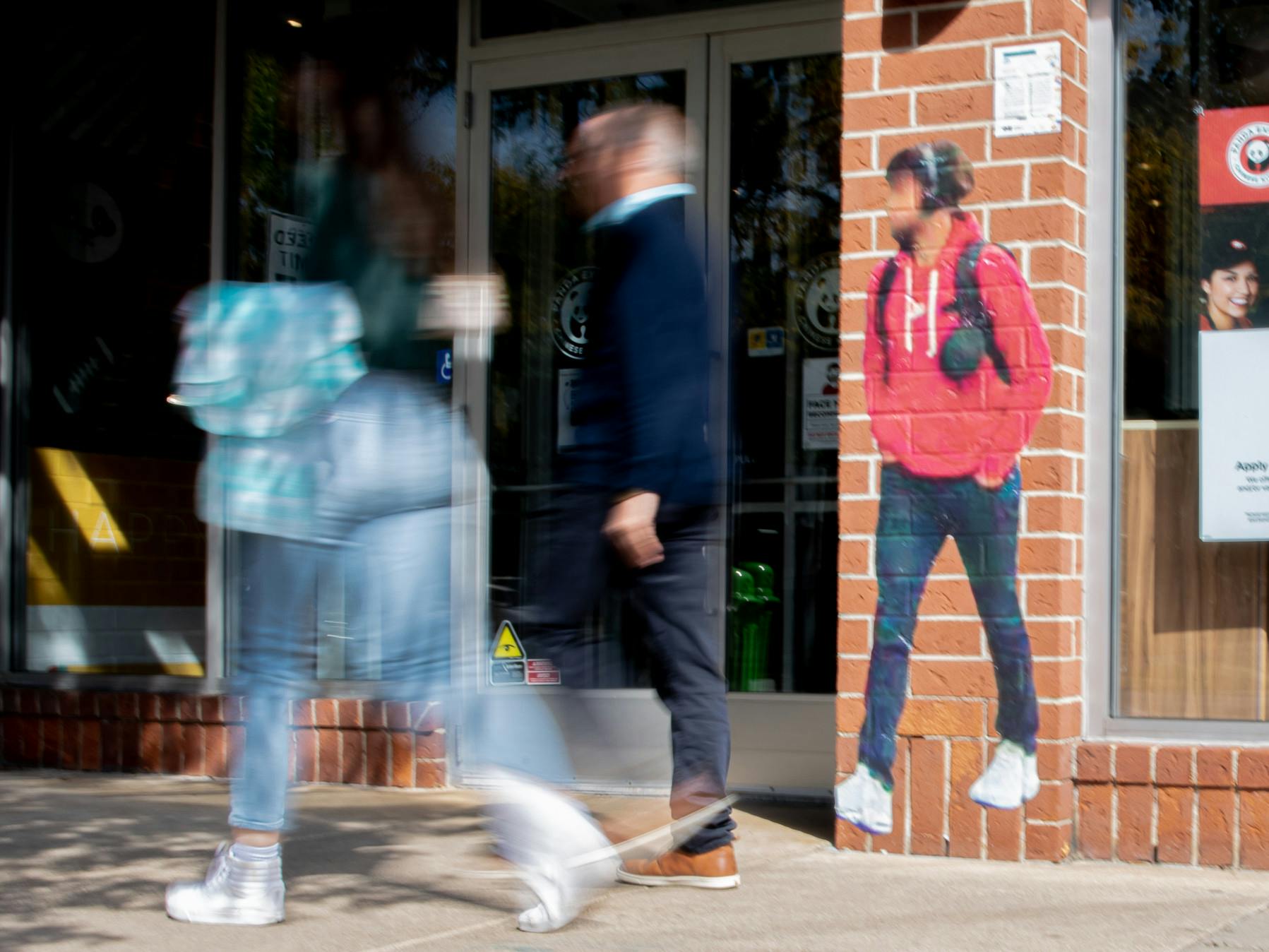With the everlasting war in the Middle East, the invasive age of social media and the rapid, dramatic climate change, people are aggressively being pushed into a more vulnerable state as our safety and privacy continues to be challenged.
International artist and activist Paolo Cirio aims to broach these topics and generate a reaction through his artwork such as "Street Ghosts" in downtown East Lansing, where candid images of real people taken from Google Street View are plastered on the walls in the same physical location where they were taken.
The internet has been a high-profile target of Cirio's activism from a young age.
"I've been working with the internet from a very early age," Cirio said. "The end of the 90s, I was a teenager and I was in the first high-care communities in Europe and already back then we were discussing privacy, or at least our own privacy."
The 90's was a time before powerhouses like social media and Google had even taken off, much less on many peoples radars, but Cirio had already been questioning our privacy with a group of activists due to browsers, search bars and the potentiality of communication intercepts.
"Back then, it was very different," Cirio said. "With the internet and the tools we had on the internet back then, the main concern was that cops could intercept our communication in knowing what we were going to do."
Cirio said the turning point came around 2005, when social media and companies like Google became powerful. Cirio said these internet-based services became "extremely invasive on our privacy."
In the same way that Facebook allows you to organize groups and create events online, Cirio and his group of activists kept things organized on paper, off their phones and off the internet, so that he and other activists could not be intercepted or blocked from their work.
"We weren't just writing stuff on the internet," Cirio said. "We were not doing calls, we would have just paper to be really careful that they couldn't know our friends and what our contacts were." Cirio said.
Cirio said he was fearful that activists could not do their work privately, and that fear was made a reality with the rise of Facebook -- now that activists information, activities and contacts can be made public, the nature of activism is losing its meaning. However, in the wake of Edward Snowden, Cirio said "some apps allow activists to share information and contacts in a safe way."
"Between Facebook and Snowden, there was a gap of like 10 years where everyone was really sharing everything, and it was madness," Cirio said.
Privacy is not the only concern in the age of social media. "We have a media that's very powerful and changing our way of seeing and perceiving reality and interaction with each other." Cirio said.
As social media has become an indispensable part of our everyday lives, more and more people become accustomed to casually scrolling through apps such as Instagram, Twitter and TikTok, making people more prone to social media addiction.
Cirio believes that there is a problem with the way we are taught to utilize new technologies and medias, critiquing leaders who manipulate the younger generation into believing that we can't get by without it.
"I don't think in school they really teach our kids how to be aware of what they are doing," Cirio said. "They say you have to learn it because that's the way you are going to get a job and get rich, and I think that's the problem."
Cirio added, "Artists like me have this goal to deconstruct this technology, language and mechanics of this media and try to show ... what the problem is with all of this."
Cirio said people are forced to use tools such as social media to move around the world.
"I cannot really avoid using them," Cirio said. "I am not using them for personal things ... but it's my job and these are tools that we all have to use, unfortunately."
Cirio has always been between art and activism around a few subjects including economy, politics and his start in protest against the Afghanistan-Iraq war. In which he, according to Cirio, remained anonymous as part of a peace movement.
With the rapidly increasing effects of climate change, Cirio has began working on a new project that aims to generate a reaction surrounding these effects such as species and ecosystems at risk of extinction.
Support student media!
Please consider donating to The State News and help fund the future of journalism.
"There's much more information about climate change in terms of emissions and the companies that caused those emissions," Cirio said. "Legally and economically, those companies have not been held accountable at all. I am publishing some information that these companies have kept secret."
According to Cirio, these dying species and ecosystems are equipped to sue these major oil and coal companies and claim financial compensation directly from these companies.
While this is a very new project, Cirio believes this can generate a platform for people, as well.
"The plan is to do the same for humans so that you have a platform where you could say how climate change affected your life," Cirio said.
Discussion
Share and discuss “East Lansing "street ghosts": How Paolo Cirio is fighting for social change with art” on social media.







